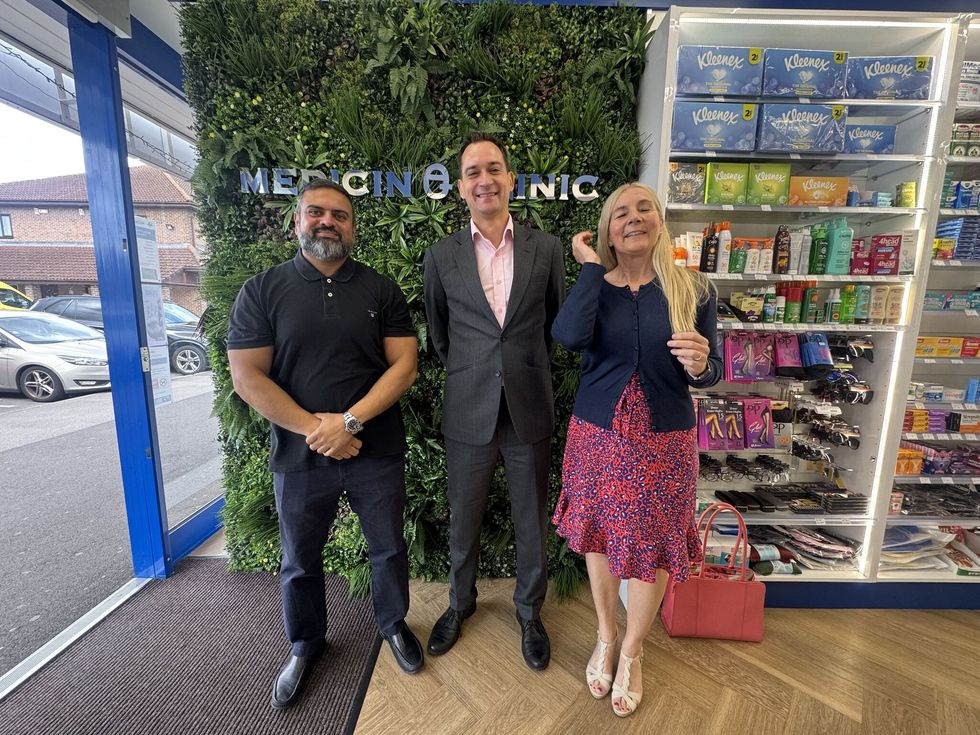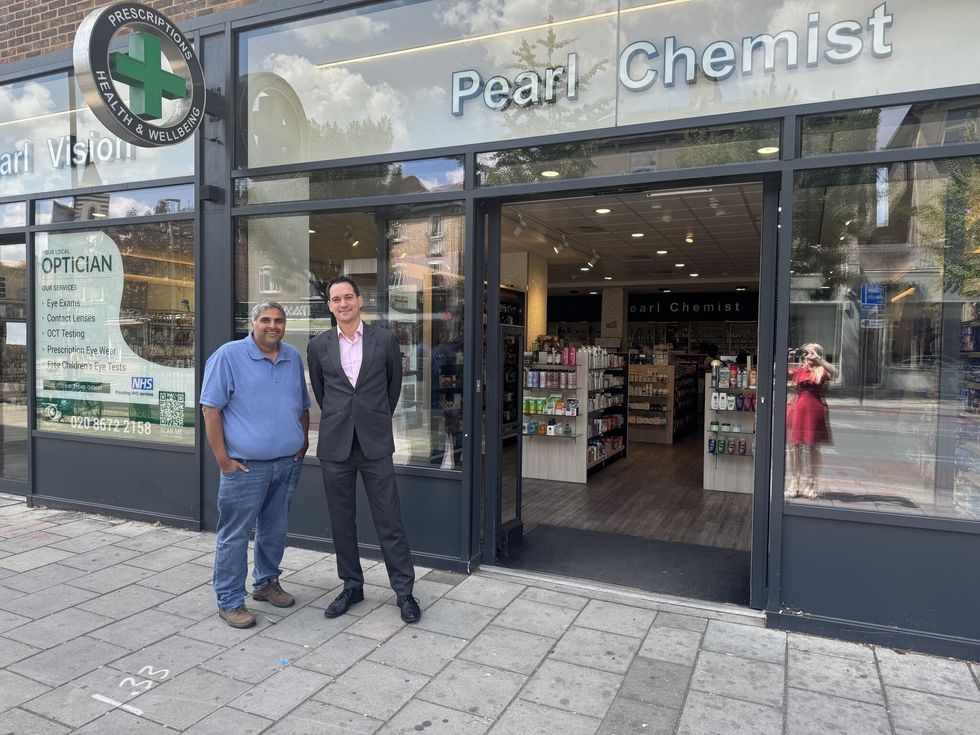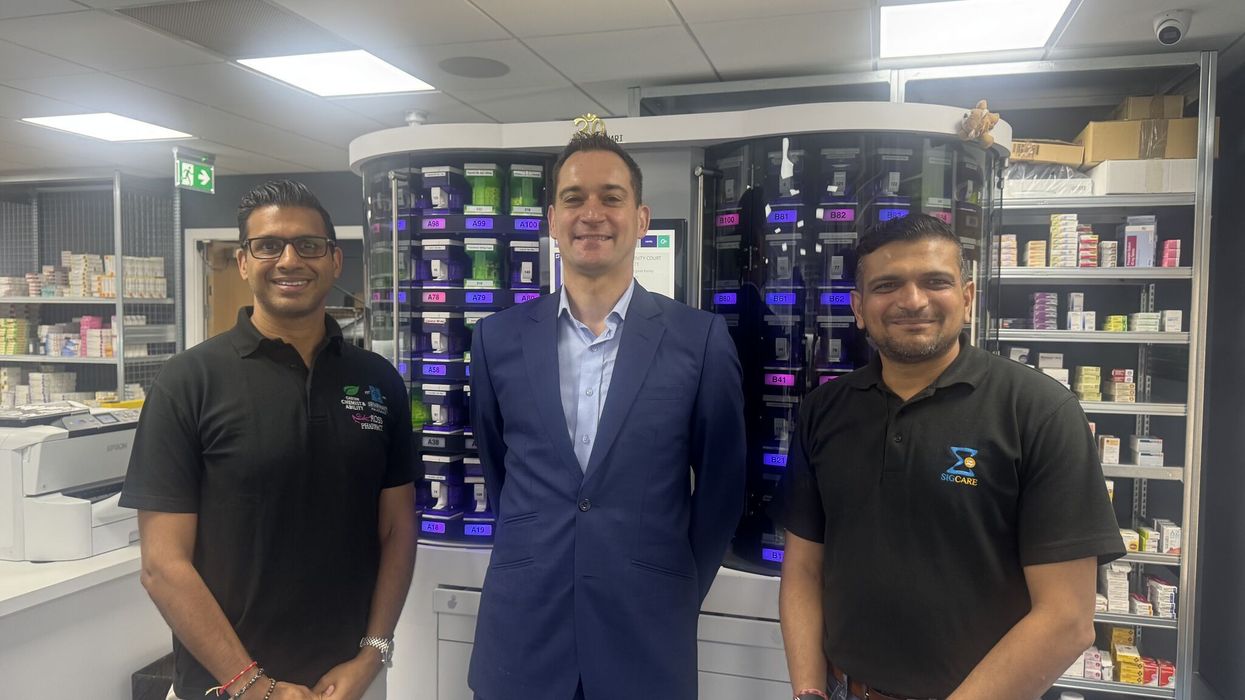In his first few months as the chief executive of the National Pharmacy Association (NPA), Henry Gregg has made a concerted effort to visit as many community pharmacies as possible.
From London, Liverpool, Birmingham and Cambridge to Edinburgh, Belfast and Cardiff – Gregg has seen first-hand the clinical expertise community pharmacies bring to the high street.
He has been left with no doubt the community pharmacies are ready, willing and have the capability to transition from a dispensing-led to a service-led provider – something that was highlighted by the government in the NHS 10 Year Plan.
“There is so much potential in community pharmacy, some of which has been outlined in the 10 Year Plan and has also been reinforced in my mind by actually visiting pharmacies and seeing all of the new services that they're taking on. If the government wants to move care from the hospital to community, community pharmacy has to be absolutely central to that,” Gregg told Pharmacy Business.
Funding
Gregg said that his visits had also been a real eye opener to the struggles community pharmacists are facing on a daily basis, many of whom are struggling to keep their doors open.
“Seeing the situation on the ground, it was clear to see how challenging it is for pharmacists at the moment,” he said.
“Some pharmacy owners told me they were not taking a salary, remortgaged their homes, taken out loans, drawn on their pensions early just to try and make ends meet.
“It was quite shocking for me as someone who's come new to the sector.”
Gregg stressed that the situation he saw in some pharmacies made it even more evident to him that the sector was in desperate need of adequate funding.
The economic review of community pharmacies in England, published in March, revealed that nearly half of pharmacies are not profitable, a significant majority (99 per cent) are underfunded relative to their ‘full economic cost’ and 78 per cent are ‘unsustainable in the short run’.
It also estimated that community pharmacy costs could rise from £5,063 million to £8,106 million between 2023/24 and 2029/30.
The baseline annual funding for the Community Pharmacy Contractual Framework (CPCF) in 2025/26 was £3.073 billion.
In the NHS 10 Year Plan, the government announced that over the next five years, they want community pharmacy to transition from being focused largely on dispensing medicines to becoming integral to the Neighbourhood Health Service, offering more clinical services.
“The 10 Year Plan outlined a clear vision for community pharmacy,” said Gregg.
“The government's talked about community pharmacy managing long term conditions which is really exciting. There's a clear role there for vaccinations, prevention, working with cardiovascular disease in terms of screening.
“But that all has to come with funding. You can only add those services in a pharmacy if you've got real stability and predictability in terms of your income on the on the dispensing side.
“If we can get the funding right on the dispensing side and the services are fully funded, it could be really exciting, and it could provide a lot of opportunities for pharmacies, but also help them to be more sustainable.”

Gregg insisted that community pharmacies are ready to embrace NHS and private services but needed the confidence to invest in their business knowing it won’t jeopardise their long-term future.
“It's completely reasonable that if you need to take out a loan to, for example, put in a consulting room or buy a robot to free up staff time, that you need to be able to pay back that investment, and you need to know what you're going to earn from your dispensing side in order for that to be the platform to then expand services,” he said.
“Our key message to government is that you need to close the £2.6 billion gap in terms of dispensing prescriptions, and then you also need to fund each of the individual services that you're adding from an NHS perspective.
“It's only by getting both of those things right that will give pharmacies the confidence to start bringing in new services, because then they will know they can pay back loans and they can potentially make themselves more sustainable by investing in both NHS and private services.”
Independent prescribing
From September next year, all newly qualified pharmacists becoming independent prescribers upon registration. This will lead to an estimated 2,600 pharmacists joining the NHS as independent prescribers.
Gregg felt this surge of independent prescribers coming into the sector will lead to more community pharmacies investing in clinical services.
“Some of them are already doing all of the NHS and private services that are available, which is really impressive. Some of them are just starting out looking at those potential services,” he said.
“With more independent prescribers next year, a lot of the pharmacists that I've spoken to, they're either trying to find the time to do IP themselves, or they're thinking about who they could potentially employ next year to take on some of that independent prescribing.
“People are at different stages of their journey. Some haven't started looking at it (more services) yet and are just thinking about it. Some are already on that journey and starting to think about how they can add consulting rooms and how they can use independent prescribing, and then some are already delivering all of the services.
“But I think across the sector in general, there is a real willingness to take on new services, because it's clear that will really help with the sustainability of pharmacies.”

Gregg, however, issued a word of caution that there needed to be a system in place that utilised independent prescribers in community pharmacy, or they could be lost to other sectors.
The Labour Party in its election manifesto last year said it would create a Community Pharmacist Prescribing Service, but there has been no update since then although the pharmacy minister Stephen Kinnock said last month that the government remains ‘committed’ to making prescribing a part of the role of community pharmacists.
“I don’t think the framework is there yet, but we need to start building that framework – there needs to be clear documentation about what they (independent prescribers) can and can't do.” said Gregg.
“We've got a couple of IPs who work at the NPA providing IP assets, and we're sending out an independent prescribing pack shortly to members.
“It's really important that the sector is prepared as much as possible because the worst thing is if people come through with their new qualifications but they can't use them and then they either go into other sectors or they give up being pharmacists completely. We can't afford to lose those skills in community pharmacy.”
Neighbourhood health service
A key part of the NHS 10 Year Plan was the announcement that community pharmacy will play a ‘vital role’ in a neighbourhood health service which would bring a broader range of services under one roof and free hospitals from ‘perpetual firefighting’ and bring down waiting lists.
The Plan added that community pharmacies will player a greater role in the management of long-term conditions, complex medication regimes, and treatment of obesity, high blood pressure and high cholesterol.
Gregg warned that there needs to be clear pathways set out to ensure there is no duplication of work and that patients know exactly where to go for what services.
“Neighbourhood health centres are really welcome, but at the moment there's not a lot of detail that sits underneath them,” he said.
“The speculation is that they're going to be GP-led, but if they are GP led, then they need to bring the pharmacies in as early as possible because if they don't, the danger is you will have a neighbourhood health centre and local pharmacy separately - that could mean a duplication of services. It needs to be really clear for the patients where they need to go for specific services.”

Some of the issues regarding GPs working with community pharmacy have come to light as a result of Pharmacy First.
Referrals to the Pharmacy First service from general practice resulting in a consultation fell by 24 per cent between May 2024 and May this year.
Gregg revealed that he had spoken to a number of NPA members who are getting fewer Pharmacy First referrals now than when the when the scheme started.
“Some of them have to go back into their GP surgeries every couple of weeks or every month, just to remind them to bring the referrals through. Some are not getting any referrals from their local GPS and also not getting enough referrals from 111 as well,” said Gregg.
He added: “It's also not yet clear whether neighbourhood health services are going to be bricks and mortar centres or they're going to be more about bringing together what already exists - I think it will be a combination of both, but it's a bit unclear as to how many bricks and mortar centres are actually going to be built, and where the money's going to come from.
“On the plus side, as details still haven't been finalised, we need to get in there and make sure that pharmacy has a really big voice and a really big role in these centres, because it looks like that's going to be the future of local commissioning.”
Collaboration
Gregg has urged for community pharmacy to come together as once voice in order to achieve the best for the sector. He revealed he was shocked by the ‘in-fighting’ he had witnessed so far which he believes makes the sector weaker in the eyes of the government.
He has already met with Community Pharmacy England (CPE) chief executive Janet Morrison and Company Chemist Association (CCA) chief executive Malcolm Harrison.
Gregg revealed he had also reached out to the Independent Pharmacies Association (IPA) and the Independent Pharmacy Contractors Network (IPCN).
“There may be areas of policy that we disagree on, but there will be things that we can all agree on and that it also includes the CPE, CCA, RPS and the different devolved nations,” he said.
“If we can get the messages right and keep repeating them over and over again, it'll be a lot harder for government to say no, because they're hearing it from across the sector - they will know that there's unity around these messages.
“We need to mobilise the sector and campaign for the things we want to achieve.”












